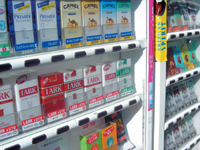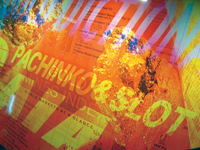Socially Responsible Investment Pays in Japan
Back to Contents of Issue: February 2004
|
|
|
|
by Darrel Whitten |
|
|
Ethical investing has become the fastest growing sector of the UK retail funds market, expanding tenfold over the past decade to become an approximately $6 billion industry; more than 20 funds have been launched in the past three years. However, the most dynamic retail market is France, which has tripled its number of funds between 2000 and 2002.
Pension fund participation has also increased dramatically. The UK Social Investment Forum reports that nearly 75 percent of UK pension funds involved in SRI are also active in some type of shareholder engagement, and according to researchers at Nyenrode University, 74 percent of Dutch pension funds expect to be using social or environmental criteria in investment decisions in the near future. In the US, the pool of SRI-screened funds is a huge $2.2 trillion. SRI from the corporate issuer perspective is called CSR, or corporate social responsibility.
Corporate management of any large listed company cannot afford to ignore this already large and growing investment approach. The four pillars of CSR are community investment, human rights and employee relations, environmental practices and ethical conduct. The International Organization for Standardization (ISO) has carried out a feasibility study regarding the establishment of standards for CSR and has launched a forum to gather stakeholder views from around the world. There is also talk that the ISO will establish global standards for CSR by 2007.
The Social Investment Forum finds that social investment screens usually occur in packages of several screens; very few screens are used by themselves. In the US, tobacco is the most broadly used screen, applied to $135 billion in US invested assets, over 80 percent of the total socially screened mutual fund universe. Alcohol is also a broadly used screen, employed by over half of the total assets in socially screened mutual funds. Labor relations, environment, gambling and defense/weapons are also commonly used screens, applied by 15-20 percent of total socially screened mutual fund assets in the US.
On the other hand, equal employment opportunity, beneficial products and services, human rights and community impact are specialty-use screens, employed by less than 15 percent of total screened mutual fund assets in the US. Global SRI Benchmarks, launched in 1999, and the Dow Jones Sustain-ability indexes were the first global indexes tracking the financial performance of the leading sustainability-driven companies worldwide. More than 46 DJSI licenses are currently held by asset managers in 14 countries to manage a variety of financial products including active and passive funds, certificates and segregated accounts.
In total, these licensees presently manage close to $2 billion based on the DJSI. Another benchmark, the FTSE4Good Indices, has been designed to measure the performance of companies that meet globally recognized corporate responsibility standards and to facilitate investment in those companies. The Financial Times publishes the results of its regular six-monthly FTSE4Good index review.
All of this social responsibility stuff is quite new to Japanese companies. When SRI surveys started hitting the desks of investor relations officers at Japanese companies, they at first did not know what they were for. But with more than 11 SRI research organizations globally, Japan's larger companies are beginning to see many such surveys crossing their desks.
After Australia, Japan is seen as Asia's most developed and promising SRI Market, but it is still small. The first SRI fund was introduced in Japan only three years ago, and there is now over 100 billion yen invested in 11 indigenous SRI funds.
However, Japanese SRI fund managers and investors do not consider cigarettes, alcohol, gambling, nuclear power or weaponry "anti-social"; rather, social screens are most often focused on environmental, human rights and supply chain issues.
Perhaps the most controversial question for SRI funds is: Do SRI funds outperform regular funds that are based on more conventional fundamental analysis?
The Social Investment Forum in the US insists that SRI funds as a whole do outperform others. In the US, socially responsible investing continues to perform "competitively" and attract new assets, the forum says, despite the US market's sustained downturn over the past two years. Socially responsible mutual funds tracked by Morningstar in the US have consistently been more likely to receive the highest rankings from both tracking organizations (four or five stars from Morningstar and an "A" or "B" ranking from Lipper) than the overall universe of mutual funds.
In Europe, however, the last two years have seen a shrinkage of total SRI fund assets amidst a generally difficult environment for asset management and financial investment activities across Europe as a whole. SRI assets in Europe suffered heavily from bearish European financial markets because the assets are primarily equity funds, and there was an inordinately high exposure to IT.
While there are no Japan-specific global SRI indexes, there are 114 companies included in the major sustainability index benchmarks such as the Dow Jones World Sustainability Index (35 companies), the FTSE4Good (87 companies) and the Ethibel Sustainability Index (25 companies). If the Dow Jones Sustainability Index has tracked the S&P 500 fairly closely over the past 10 years (which it has), how have the Japanese companies in this index faired against their Japanese benchmarks?
Comparisons of the market-cap-weighted performance of the 35 Japanese DJSI stocks and the Topix since 1993 makes it pretty clear that this select group of Japanese companies has done much better than the Topix, especially after the DJSI was launched in 1999. The sharp rise seen in market cap of these stocks leading up to 2000 is a telltale sign that there was a heavier weighting in IT stocks, because this run coincided with Japan's mini IT bubble.
It is also interesting to note what stocks made the cut for the DJSI and what stocks didn't. For example, the Hachijuni Bank, a regional bank, is the only bank currently in the index, while the trading companies and more recently the shipping companies are well if not over-represented when compared to a typical Japan portfolio. Indeed, all three of the shipping companies have been included in the index in the past five months, which is unusual for a global free float market-cap-weighted index that includes only 35 Japanese companies. This is particularly interesting in light of recent comments -- some of which we made ourselves -- about the relative attractiveness of shipping companies. @
|
|
Note: The function "email this page" is currently not supported for this page.


 SOCIALLY RESPONSIBLE INVESTMENT (SRI) is becoming a mainstream investing style around the world. A Thomson-Extel survey of European institutional investors showed that 45 percent of institutions surveyed have invested over 10 percent of their total assets in SRI-screened funds. In effect, Europe is moving SRI into a more mainstream policy position than it occupies in North American or Asian markets.
SOCIALLY RESPONSIBLE INVESTMENT (SRI) is becoming a mainstream investing style around the world. A Thomson-Extel survey of European institutional investors showed that 45 percent of institutions surveyed have invested over 10 percent of their total assets in SRI-screened funds. In effect, Europe is moving SRI into a more mainstream policy position than it occupies in North American or Asian markets.
 Aside from the SRI wave, there is also a movement to establish CSR standards for Japanese companies.
Aside from the SRI wave, there is also a movement to establish CSR standards for Japanese companies. 


